 W
WDie Aktion was a German literary and political magazine, edited by Franz Pfemfert and published between 1911 and 1932 in Berlin-Wilmersdorf; it promoted literary Expressionism and stood for left-wing politics. To begin with, Die Aktion was published weekly, after 1919 fortnightly, and only sporadically beginning from 1926.
 W
WAutonomism, also known as autonomist Marxism and autonomous Marxism, is an anti-capitalist left-wing political and social movement and theory. As a theoretical system, it first emerged in Italy in the 1960s from workerism (operaismo). Later, post-Marxist and anarchist tendencies became significant after influence from the Situationists, the failure of Italian far-left movements in the 1970s, and the emergence of a number of important theorists including Antonio Negri, who had contributed to the 1969 founding of Potere Operaio as well as Mario Tronti, Paolo Virno and Franco "Bifo" Berardi.
 W
WThe Balkan Federation project was a left-wing political movement to create a country in the Balkans by combining Yugoslavia, Albania, Greece, Bulgaria, and Romania.
 W
WThe Basel Congress of 1869 is the common name assigned to the 4th General Congress of the International Workingmen's Association (IWA), commonly known as the First International. The meeting was held in the city of Basel, Switzerland from September 6 to 12, 1869 and was attended by 75 delegates, representing the socialist and labor movements of United States, England France, Belgium, Germany, Austria, Switzerland, Italy, and Spain.
 W
WThe Battle of Guisa was a relevant event in the history of Cuba. One of the major victories of the Rebel Army in the Liberation War (1956-1958) sustained against the dictatorship of Fulgencio Batista in Cuba.
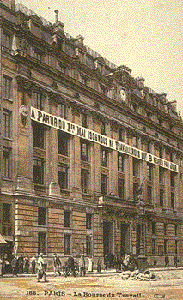 W
WThe Bourse du Travail, a French form of the labour council, were working class organizations that encouraged mutual aid, education, and self-organization amongst their members in the late nineteenth and early twentieth centuries.
 W
WThe Communist International (Comintern), also known as the Third International, was an international organization founded in 1919 that advocated world communism, controlled by the Soviet Union. The Comintern resolved at its Second Congress to "struggle by all available means, including armed force, for the overthrow of the international bourgeoisie and the creation of an international Soviet republic as a transition stage to the complete abolition of the state". The Comintern was preceded by the 1916 dissolution of the Second International.
 W
WThe Cuban Revolution was an armed revolt conducted by Fidel Castro and his fellow revolutionaries of the 26th of July Movement and its allies against the military dictatorship of Cuban President Fulgencio Batista. The revolution began in July 1953, and continued sporadically until the rebels finally ousted Batista on 31 December 1958, replacing his government. 26 July 1953 is celebrated in Cuba as the Day of the Revolution . The 26th of July Movement later reformed along Marxist–Leninist lines, becoming the Communist Party of Cuba in October 1965.
 W
WThe Diggers were a group of religious dissidents in England, sometimes seen as forerunners of modern anarchism, and also associated with agrarian socialism and Georgism. Gerrard Winstanley's followers were known as True Levellers in 1649, in reference to their split from the Levellers, and later became known as Diggers because of their attempts to farm on common land.
 W
WThe Left in France was represented at the beginning of the 20th century by two main political parties, namely the Republican, Radical and Radical-Socialist Party and the French Section of the Workers' International (SFIO), created in 1905 as a merger of various Marxist parties.
 W
WThe General Jewish Labour Bund in Lithuania, Poland and Russia, generally called The Bund or the Jewish Labour Bund, was a secular Jewish socialist party initially formed in the Russian Empire and active between 1897 and 1920. In 1917 the Polish part of the Bund, which dated to the times when Poland was a Russian territory, seceded from the Russian Bund and created a new Polish General Jewish Labour Bund which continued to operate in Poland in the years between the two world wars. The majority faction of the Russian Bund was dissolved in 1921 and incorporated into the Communist Party. Other remnants of the Bund endured in various countries. A member of the Bund was called a Bundist.
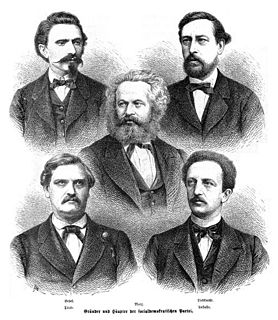 W
WThe foundation of the Social Democratic Party of Germany can be traced back to the 1860s, and it has represented the centre-left in German politics for much of the 20th and 21st centuries. From 1891 to 1959, the SPD theoretically espoused Marxism.
 W
WSocialism in the United Kingdom is thought to stretch back to the 19th century from roots arising in the aftermath of the English Civil War. Notions of socialism in Great Britain have taken many different forms from the utopian philanthropism of Robert Owen through to the reformist electoral project enshrined in the birth of the Labour Party.
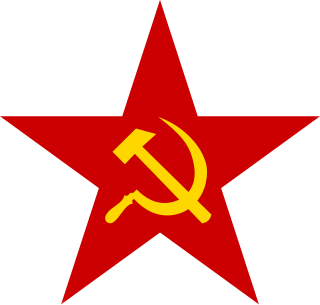 W
WThe Grivița strike of 1933 was a railway strike which was started at the Grivița Workshops, Bucharest, the Kingdom of Romania in February 1933 by workers of Căile Ferate Române. The strike was brought about by the increasingly poor working conditions of railway employees in the context of the worldwide Great Depression, which affected Romania significantly. As the workers occupied the workshops, the Romanian Army surrounded and sieged them. The fighting resulted in the death of 7 workers, including Vasile Roaită, a 19-year-old worker whose image was used by the early Communist regime.
 W
WThe Haymarket affair was the aftermath of a bombing that took place at a labor demonstration on May 4, 1886, at Haymarket Square in Chicago, Illinois, United States. It began as a peaceful rally in support of workers striking for an eight-hour work day, the day after police killed one and injured several workers. An unknown person threw a dynamite bomb at the police as they acted to disperse the meeting, and the bomb blast and ensuing gunfire resulted in the deaths of seven police officers and at least four civilians; dozens of others were wounded.
 W
WHeimin Shinbun was a socialist and anti-war daily newspaper established in Japan in November 1903, as the newspaper of the Heimin-sha group. It was founded by Kōtoku Shūsui and Sakai Toshihiko, as a pacifist response to the approaching Russo-Japanese War. When the newspaper that Kōtoku and fellow socialist Sanshirō Ishikawa had worked for, Yorozu Chūhō, endorsed the war, they resigned in protest to form the group.
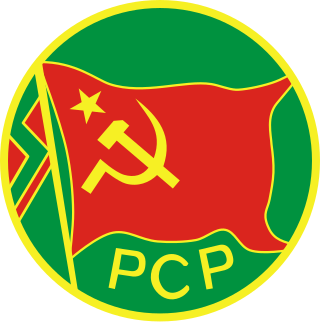 W
WThe history of the Portuguese Communist Party, spans a period of 100 years, since its foundation in 1921 as the Portuguese section of the Communist International (Comintern) to the present. The Party is still an active force within Portuguese society.
 W
WThe Socialist Left Party of Norway was founded in 1975. Its history shows a long-term rise in political influence, resulting in part from its emergence from older left-wing parties, especially the Socialist People's Party. After initial political setbacks in the 1970s, the party reorganized and regained support, particularly under Theo Koritzinsky (1983–87) and Erik Solheim (1987–97). Support dropped in the 1997 parliamentary election but rose again by the 21st Century, thanks to the party's position as the only sizeable party to the left of the Norwegian Labour Party. Labour's move further to the right under Jens Stoltenberg also helped the party's rise. By 2005, the Socialist Left Party had joined the Labour and Centre parties in Norway's governing Red-Green Coalition. The party has been led by Audun Lysbakken since 11 March 2012.
 W
WKarl Höchberg was a German social-reformist writer, publisher and economist, with a Jewish family background, who acted under the pseudonyms Dr. Ludwig Richter and R.F. Seifert. In 1876, he became a member of the Social Democratic Workers Party of Germany (SDAP). From 1877 to 1878, he was responsible for editing the Zukunft ("Future") magazine. He was in exile in Switzerland from 1878 onwards, first to avoid conscription to the Prussian military, and then due to the anti-socialist laws. Eduard Bernstein and Karl Kautsky were his secretaries and pupils in Zurich. Afterwards, between 1879 and 1881, he was editor of the Jahrbuch für Sozialwissenschaft und Sozialpolitik.
 W
WThe Industrial Workers of the World (IWW), members of which are commonly termed "Wobblies", is an international labor union that was founded in Chicago in 1905. The origin of the nickname "Wobblies" is uncertain. IWW ideology combines general unionism with industrial unionism, as it is a general union, subdivided between the various industries which employ its members. The philosophy and tactics of the IWW are described as "revolutionary industrial unionism", with ties to socialist, syndicalist, and anarchist labor movements.
 W
WThe International Alliance of Socialist Democracy was an organisation founded by Mikhail Bakunin along with 79 other members on October 28, 1868 as an organisation within the International Workingmen's Association (IWA). The establishment of the Alliance as a section of the IWA was not accepted by the central committee of the IWA because international organisations were not allowed to join. The Alliance dissolved shortly afterwards and the former members instead joined their respective national sections of the IWA.
 W
WThe International Socialist Congress, Stuttgart 1907 was the Seventh Congress of the Second International. The gathering was held in Stuttgart, Germany from 18 to 24 August 1907 and was attended by nearly 900 delegates from around the globe. The work of the congress dealt largely with matters of militarism, colonialism, and women's suffrage and marked an attempt to centrally coordinate the policies of the various socialist parties of the world on these issues.
 W
WThe first meetings of the Second International were held in Paris, beginning on July 14, 1889, on the centenary of the storming of the Bastille. Internecine conflicts within the French socialist movement had prompted the "possibilist" and Marxist factions to hold their own congresses at the same time. The Marxist congress resolved to arrange a second meeting at Zurich, while the Possibilists would arrange one in Brussels. However the Marxist organizing committee would later decide to join the Brussels congress, and the next congress would meet in 1891.
 W
WThe International Workingmen's Association (IWA), often called the First International (1864–1876), was an international organisation which aimed at uniting a variety of different left-wing socialist, communist and anarchist groups and trade unions that were based on the working class and class struggle. It was founded in 1864 in a workmen's meeting held in St. Martin's Hall, London. Its first congress was held in 1866 in Geneva.
 W
WIn 1968 and 1969, there were student protests at several Japanese universities that ultimately forced the closure of campuses nationwide. Known as daigaku funsō or daigaku tōsō, the protests were part of the worldwide protest cycle in 1968 and the late-1960s Japanese protest cycle, including the Anpo protests of 1970 and the struggle against the construction of Narita Airport. Students initially demonstrated against practical issues in universities, and they eventually formed the Zenkyōtō in mid-1968 to organize themselves. The protests were dispersed in 1969 by the Act on Temporary Measures concerning University Management.
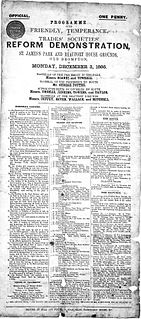 W
WThe London Working Men's Association was an organisation established in London in 1836. It was one of the foundations of Chartism, advocating for universal male suffrage, equally-populated electoral districts, the abolition of property qualifications for MPs, annual Parliaments, the payment of MPs, and the establishment of secret ballot voting. The founders were William Lovett, Francis Place and Henry Hetherington. They appealed to skilled workers rather than the mass of unskilled factory labourers. They were associated with Owenite socialism and the movement for general education.
 W
WThe Lupeni strike of 1929 took place on 5 and 6 August 1929 in the mining town of Lupeni, in the Jiu Valley of Transylvania, Romania.
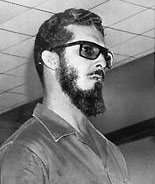 W
WAugusto Martínez Sánchez was a Cuban lawyer, military and politician; one of the commanders of the Cuban Revolution, close to Fidel Castro. Martínez Sánchez was a member of the July 26 Movement since April 1958 and participated in the guerrilla struggle in Sierra Maestra against the government of Fulgencio Batista, attached to the Second Eastern Front "Frank País", under the direct orders of Raúl Castro.
 W
WBeginning in May 1968, a period of civil unrest occurred throughout France, lasting some seven weeks and punctuated by demonstrations, general strikes, as well as the occupation of universities and factories. At the height of events, which have since become known as May 68, the economy of France came to a halt. The protests reached such a point that political leaders feared civil war or revolution; the national government briefly ceased to function after President Charles de Gaulle secretly fled France to Germany at one point. The protests are sometimes linked to similar movements that occurred around the same time worldwide and inspired a generation of protest art in the form of songs, imaginative graffiti, posters, and slogans.
 W
WThe Mexican Revolution was a major revolution that was not a unified struggle, but an extended sequence of armed regional conflicts. It destroyed the Federal Army and replaced it with a revolutionary army, transformed Mexican culture, and the government. It also resulted in a new constitution that incorporated goals for which the revolutionaries fought. Although the regime of President Porfirio Díaz (1880-1911) was increasingly unpopular after 31 years, there was no foreboding that a revolution was about to break out in 1910. Díaz failed to find a controlled solution to presidential succession, resulting in a power struggle among competing elites, between elites and the middle classes, which sometimes involved the "masses". Agrarian rebellions occurred, most prominently in Morelos under Emiliano Zapata. The Federal Army's inability to put down relatively small but widespread rebellions against Díaz in 1910-11 showed its essential weakness, surprising the rebels. The conflict was primarily a civil war, but foreign powers, having important economic and strategic interests in Mexico, figured in the outcome of Mexico's power struggles. The United States played an especially significant role. Northern Mexico, with its access to arms from the U.S., saw the most military clashes. With the exception of Zapata, the revolutionary leaders of first rank were all from northern Mexico: Francisco I. Madero (Coahuila); Pancho Villa (Chihuahua); Pascual Orozco (Chihuahua); Venustiano Carranza (Coahuila); and Alvaro Obregón (Sonora). Three revolutionary generals from Sonora came to dominate the period of the 1920s and 1930s, most prominently Obregón, ultimately the most successful revolutionary general. He consolidated political power and became president of Mexico in 1920 after a coup ousting Carranza; he was succeeded by fellow Sonoran, Plutarco Elías Calles in 1924. Social movements emerged during the revolution, but "their defeat or subordination mattered more." Former revolutionary generals ruled Mexico from 1920 until 1940, and during that time they systematically brought the military under civilian rule and removed the institution from politics, in contrast to much of Latin America. The Revolution was a decade-long civil war, bringing to power a new political elite that ruled Mexico through a single political party until the presidential election of 2000 when the opposition party won. Even the winner of that election, Vicente Fox, claimed the election was heir to the democratic election of Francisco Madero, claiming the heritage and legitimacy from the Revolution.
 W
WThe Order of Industrial Heroism was a private civil award given in the United Kingdom by the Daily Herald newspaper to honour examples of heroism carried out by ordinary workers. Many of the 440 awards were posthumous. Only two were made to a woman; six were awarded to large groups of miners, under the auspices of their trade union lodges.
 W
WThe Phalanx; or Journal of Social Science was a Fourierist journal published in New York City, edited by Albert Brisbane and Osborne Macdaniel from 1843 to 1845.
 W
WThe Possibilists, also called Broussists, were a faction of the French socialist movement led by Paul Brousse. Benoît Malon and others supported the faction although they did not always fully share its inspiring principles. It originated within the "Federation of the Socialist Workers' Party of France", a Marxist-inspired organisation founded by Paul Lafargue, Jules Guesde and others, in Marseilles, in 1879.
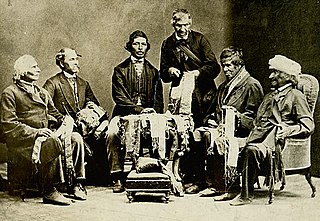 W
WWhile Karl Marx and Friedrich Engels defined communism as a political movement, there were already similar ideas in the past which one could call communist experiments. Marx himself saw primitive communism as the original hunter-gatherer state of humankind. Marx theorized that only after humanity was capable of producing surplus did private property develop.
 W
WHendrick Peter Godfried Quack was a Dutch legal scholar, economist and historian, who is best known for his work De socialisten: Personen en stelsels.
 W
WThe Revolutions of 1848, known in some countries as the Springtime of the Peoples or the Springtime of Nations, were a series of political upheavals throughout Europe in 1848. It remains the most widespread revolutionary wave in European history.
 W
WThe Revolutions of 1917–1923 was a revolutionary wave that included political unrest and revolts around the world inspired by the success of the Russian Revolution and the disorder created by the aftermath of World War I. The uprisings were mainly socialist or anti-colonial in nature. Some socialist revolts failed to create lasting socialist states. The revolutions had lasting effects in shaping the future European political landscape, with for example the collapse of the German Empire and the abdication of the German Kaiser.
 W
WThe Second International (1889–1916) was an organisation of socialist and labour parties, formed on 14 July 1889 at two simultaneous Paris meetings in which delegations from twenty countries participated. The Second International continued the work of the dissolved First International, though excluding the powerful anarcho-syndicalist movement. While the international had initially declared its opposition to all warfare between European powers, most of the major European parties ultimately chose to support their respective states in the First World War. After splitting into pro-Allied, pro-Central Powers, and antimilitarist factions, the international ceased to function. After the war, the remaining factions of the international went on to found the Labour and Socialist International, the International Working Union of Socialist Parties, and the Communist International.
 W
WSocialism: An Economic and Sociological Analysis is a book by Austrian School economist and libertarian thinker Ludwig von Mises, first published in German by Gustav Fischer Verlag in Jena in 1922 under the title Die Gemeinwirtschaft: Untersuchungen über den Sozialismus.
 W
WSocialism with a human face is a slogan referring to the reformist and democratic socialist programme of Alexander Dubček and his colleagues, agreed at the Presidium of the Communist Party of Czechoslovakia in April 1968, after he became chairman of the KSČ in January 1968. The first author of this slogan was Radovan Richta, and it was a process of moderate democratization, economic modernization, and political liberalization that sought to build an advanced and modern socialist society that valued democratic Czechoslovakian tradition, while still allowing the Communist Party to continue governing. Socialism with a human face was a key force in initiating the Prague Spring, a period of national democratization and economic decentralization, which was however rolled back by the Warsaw Pact invasion of Czechoslovakia on August 21st, 1968.
 W
WThe Socialist International (SI) is a worldwide organisation of political parties which seek to establish democratic socialism. It consists mostly of democratic socialist, social-democratic and labour political parties and other organisations.
 W
WThe Third Socialist Workers' Congress of France was held in Marseille, France, in 1879. At this congress the socialist leaders rejected both cooperation and anarchism, both of which would allow the existing regime to continue, and adopted a program based on collectivism. The congress also adopted a motion that women should have equal rights to men, but several delegates felt that essentially woman's place was in the home. The congress has been called a triumph of Guesdism and the birthplace of French Marxist socialism, but both claims are open to question. The attendees soon split into rival groups with disparate beliefs.
 W
WThe St. Imier Congress was a meeting of the Jura Federation and anti-authoritarian apostates of the First International in September 1872.
 W
WThe United Front Against Fascism (UFAF) was an anti-fascist conference organized by the Black Panther Party and held in Oakland, California, from July 18 to 21, 1969.
 W
WThe United Socialist Party of Venezuela is a socialist political party which has been the ruling party of Venezuela since 2010. It was formed from a merger of some of the political and social forces that support the Bolivarian Revolution led by President Hugo Chávez. It is the largest political party in Venezuela and the 11th largest in the world with more than 7 million active members as of 2014.
 W
WThe Vilna Group was a circle of Jewish Social-Democrats which met secretly in the city of Vilna, then part of the Russian empire. The group was founded in the mid-1890s. Its members devoted themselves to disseminating Marxist and socialist literature to Jewish textile workers and to some extent to Jewish and non-Jewish workers generally, providing literacy and education classes for workers and supporting the formation of trade unions. They were among the first to produce socialist literature in Yiddish. All this was illegal and had to be done clandestinely, and all members of the Vilna Group were arrested at various points. The Vilna group included, among others, Arkadi Kremer and his wife Pati Kremer, John Mill and Mikhail Liber. It was one of the precursors of the General Jewish Workers' Association in Lithuania, Poland and Russia, founded in 1897. The Vilna Group also played a role in founding the Russian Social-Democratic Workers' Party (RSDRP) in 1898. Most veterans of the Vilna Group later supported the Mensheviks.
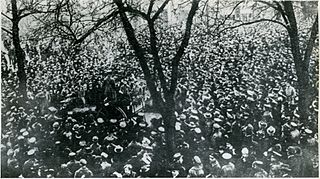 W
WWorkers' Councils in Poland or councils of workers' delegates were representative organs of workers and peasants, set up at various times in Poland throughout the 20th century, but in greatest numbers towards the end of the First World War on Polish territories.